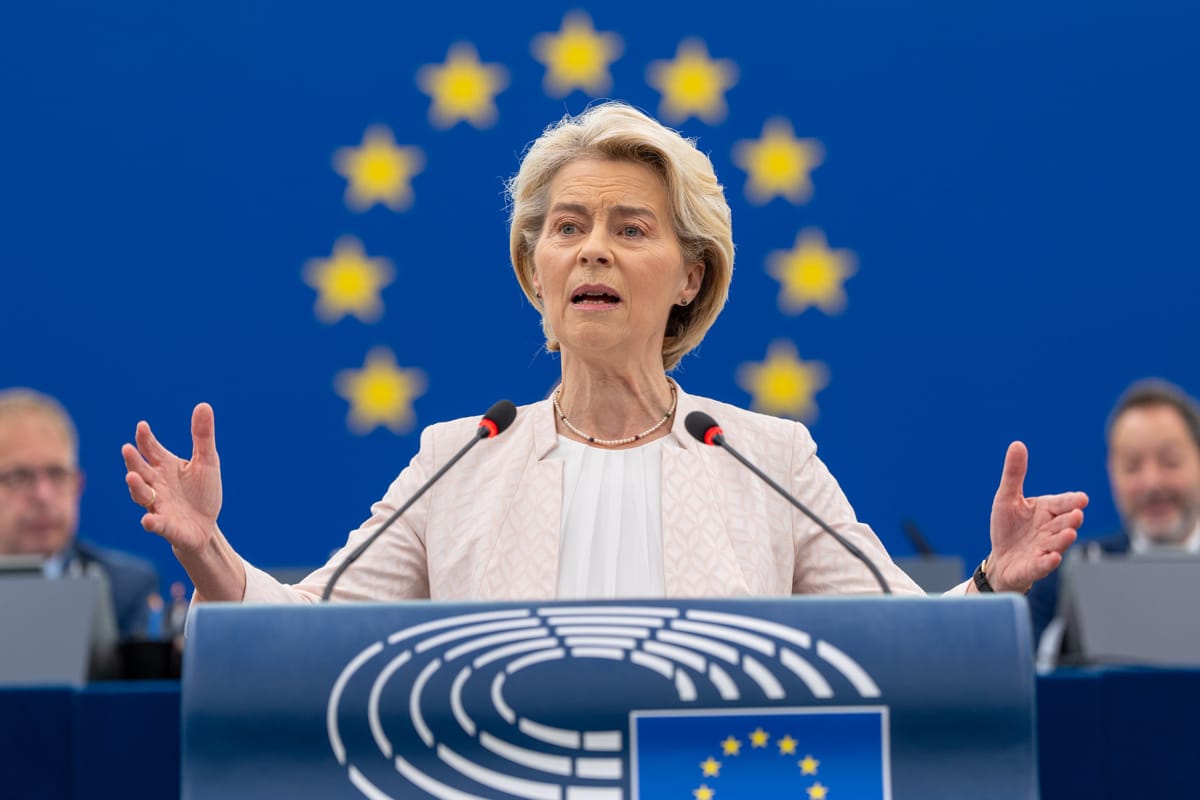Murmurs of trade war are getting louder. Not just between China and the United States should Donald Trump be re-elected, but also between China and Europe. Now more than ever it’s important for Europe to speak with one voice on global affairs. But recent elections make this much less likely. We should expect a Europe that is more divided and less coherent on foreign policy issues, including ones that are important to Australia, most notably policy towards China.
A lot has been made about the shift to the right in EU parliamentary elections last month. And while centre-right parties ultimately held their ground, they will now need the support of the newly invigorated far right, who are set on hollowing out the European Union from the inside.
This shift to the right has not been uniform, however. Outcomes in Hungary and Poland, as well as in France’s national elections, have bucked this trend. Instead of a sweeping win for the far right, the recent elections have mainly signified a swing away from incumbents.
All of this will leave a Europe that is more divided and more inward-looking.
It has always been a challenge for Europe to be more than the sum of its parts on foreign policy.
Take Hungary’s Viktor Orbán, who embarked on an “appeasement mission” of Russia and China this month, widely criticised by his European colleagues. Or France, which finds itself in political turmoil after its recent elections. A more distracted France is a particular worry for European foreign policy coherence, as Paris has been alone in laying out a vision for the continent’s role in the world.
And the timing could not be worse. Should Trump be returned to the White House in the November election, Europe will have to contend with a more demanding and less reliable economic and security partner. Emmanuel Macron’s calls for the European Union to operate with greater strategic autonomy have often garnered eye rolls across the continent and raised eyebrows in the United States. But Europe might soon be forced into a more isolated role without having prepared itself.
The impact of the recent elections will be keenly felt on EU policy towards China. Europe has long grappled with how to deal with this increasingly assertive major power. National responses have ranged from an enthusiastic embrace, in the case of Hungary, to strong opposition, in the case of Lithuania.
Nevertheless, since Russia’s invasion of Ukraine, Europe has become more “sober” about China. EU Commission President Ursula von der Leyen, who last week won a second term in office, has done an admirable job finding a common line focused on de-risking in key areas while keeping trade flowing – at least for now.

This focus on national economic resilience will continue. One can look to Italy’s right-wing government under Prime Minister Georgia Meloni, which has taken several steps to de-risk from China. However, European governments increasingly wary of the popular turn against incumbents will be more susceptible to economic inducements and pressure from China, including efforts to sow even more division in the bloc.
Last month, the EU introduced tariffs on Chinese EVs. France and Spain were strong supporters of the move, while Germany was trying to sabotage it until the last minute. Berlin feared Beijing’s retribution against its own important car industry.
In response, China has announced anti-dumping investigations into European brandy (99 per cent of which comes from France) and pork (nearly a quarter of which comes from Spain). Conversely, China has so far refrained from openly threatening car manufacturers (which would disproportionately affect Germany).
It’s not difficult to see how parties focused on domestic issues, particularly a faltering economy and high cost-of-living, might buckle under economic pressure from China.
Europe’s soft power is also likely to take a hit from the recent election results. Europe has taken pride in its willingness to adopt principled stands on issues such as climate change and human rights. Earlier this year, the European Union passed landmark legislation requiring large companies to identify and address human rights and environmental risks in their value chains. It also introduced a ban on goods produced using forced labour, with an eye on Xinjiang.
The advancement of these issues will suffer under a Europe that is not only more focused on domestic issues, but also more right leaning. The newly powerful far right will be disinterested in confronting China on principles it does not value itself. This will weaken Europe’s overall authority, especially in a world that is increasingly dominated by hard power.
A weaker and more divided Europe matters for Australia. The bloc is the world’s third-largest economy and has become an important player in efforts to resist Beijing’s use of economic coercion. More recently, it has started to play a greater strategic and military role in the Indo-Pacific, illustrated by the strong European contingent participating in the Royal Australian Air Force’s “Pitch Black” exercises this year.
It has always been a challenge for Europe to be more than the sum of its parts on foreign policy. But recent election results suggest it will now be even harder for the EU to stand on its own two feet as a global actor, let alone get the 27 sets of feet walking in the same direction.

